Whatever Strikes my Fancy.
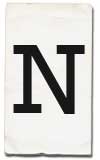
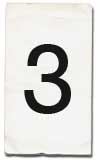
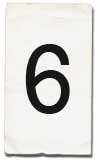
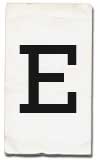
The hypothesis has been made that, "All cards with a vowel on one side have an odd number on the other side."
What card or cards must you turn over to test the hypothesis?
 ==>
==> 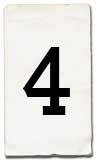
Does this prove the hypothesis?
If you think it does then think again. This is the illogic of conspiracy nuts. You've made erroneous extrapolations on the problem. You've assumed that every card has a letter on one side and a number on the other and that there is an inverse relationship between consonants and vowels and odd and even numbers. In fact the hypothesis has been neither proved nor disproved. Turning over the "N" card does absolutely nothing to test the hypothesis since the hypothesis says nothing at all about consonants. Regardless of whether the back of the "N" card is an odd number, another letter, blank, or anything else excluding a vowel, absolutely nothing about the nature of cards with a vowel on one side has been determined.
Now consider this:
 ==>
==> 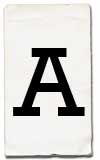
Here we have a card with a vowel on one side and a consonant on the other. This IS valuable information because it disproves the hypothesis. Because of this slight chance of refuting the hypothesis the "N" card is not the worst choice, but it is a shot in the dark equivalent to the "6".
 ==>
==> 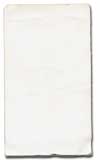
 ==>
==> 
On the other hand, IF the "3" card happens to have a vowel on the back it would then help to validate the hypothesis because you would then have additional evidence that the hypothesis is true. However since there is no guarantee at all that a card with an odd number on one side will have a vowel on the other this result is a matter of blind luck and certainly not the best choice for testing the hypothesis.
Turning over the "3" is the worst choice since you are most likely to learn nothing useful at all, only a slight change of validating the hypothesis and no chance at all of disproving the hypothesis and thereby learning something definitive (as would be the case if the "N" or the "6" had a vowel on the other side).
(Regarding the value of the data point if the "3" card happens to have a vowel, please see "Induction" below the "E" card write-up.)
 ==>
==> 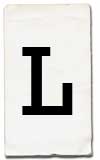
If you think it does then think again. This is the illogic of conspiracy nuts. You've made erroneous extrapolations on the problem. You've assumed that every card has a letter on one side and a number on the other and that there is an inverse relationship between consonants and vowels and odd and even numbers. In fact the hypothesis has been neither proved nor disproved. The "6" card is a very poor choice, but not the worst possible choice (that'd be the "3" above). In this case nothing has been determined about the nature of cards with a vowel on one side. The hypothesis says nothing about any other relationship. There is nothing about the hypothesis that precludes cards with an even number on one side from having anything other than a vowel on the other side. This result does nothing to validate or invalidate the hypothesis.
Turning over the "6" card is a poor choice since you are most likely to learn nothing useful at all but better than the "3" since you have a tiny chance of disproving the hypothesis.
 ==>
==> 
On the other hand, IF the "6" card happens to have a vowel on the back it would provide you with absolute proof that the hypothesis is wrong. This makes is a marginally better test that the "3" card since you have a random chance of disproving the hypothesis definitively, but there is not guarantee that will happen and it is by no means the best choice.
 ==>
==> 
 ==>
==> 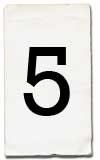
If the obverse of the "E" card turns out to have an odd number on it, then you have a data point validating the hypothesis.
If you read the all the reasons above you might have noticed that while there were two possible scenarios that could definitively disprove the current hypothesis, not one provided proof. In this set of four cards we potentially have two data points that validate the hypothesis in the best-case scenario of the "3" having a vowel on the back and the "E" having an odd number but we by no means have every card in the universe with a vowel written on it or any reason to believe we have a reasonable sample thereof. We can never know with absolute certainty that "All cards with a vowel on one side have an odd number on the other." We can only be increasingly confident that our hypothesis is correct as we come across more and more cards with a vowel on one side and an odd number on the other without seeing a card with a vowel on one side and anything else on the other. With enough data points we might develop the confidence to call our hypothesis a theory or even a law, but we'll never have absolute proof. That's impossible without absolute knowledge of everything in the universe (have we seen every card that exists, ever existed and ever will exist?). If we come across some contradictory evidence out "All cards with vowels..." theory is gone, but not entirely useless. We can revise our theory to some more refined value based on the data at hand (e.g. "A card with a vowel written on one side has a 57% likelihood of having an odd number written on the other side") .
Oringinal post: http://mbarrick.livejournal.com/818776.html